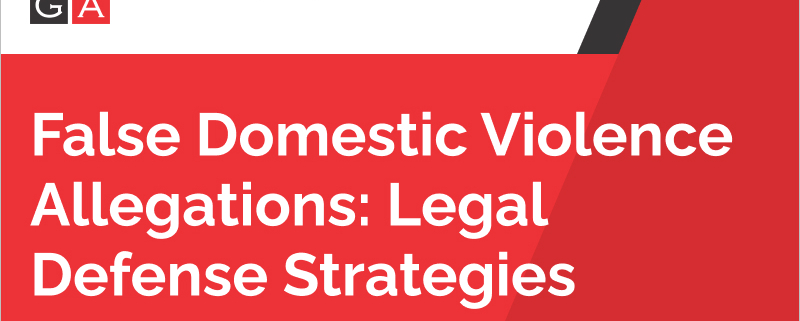The Prevalence and Impact of False Allegations
Did you know in some studies that between 2% and 10% of domestic violence allegations are found to be false?
While they may seem like a small percentage, the impact of one false accusation can devastate someone’s life. It could ruin reputations, strain relationships, and put innocent people at risk of severe legal repercussions.
If you’ve ever been falsely accused, you’re not alone. There are strategies to help you prove innocence.
False domestic abuse allegations can feel like a sucker punch in the guts. The system is designed to protect victims (as it should be), but that can leave the falsely accused scrambling to find help in clearing their name. If you’re facing these allegations, Cega Law Group can help you fight back while taking the proper steps to keep you informed, prepared, and ready to reclaim your life.
The Prevalence and Impact of False Allegations
False allegations of domestic abuse are damaging and life-altering. One accusation can lead to an arrest, protective orders, and detrimental life consequences, like job loss, divorce, and loss of friendships and loved ones.
How can you defend yourself when you’ve been shunned and made to feel helpless and hopeless? Or the better question—why would someone make a false claim?
Sometimes, false domestic abuse claims are strategies during the collapse of a marriage or a custody battle. Other times, allegations are rooted in revenge or emotional overreaction. Someone wants to hurt you.
Regardless of motives, false allegations weaponize the legal system, causing irreparable harm if not addressed quickly and effectively.
How Domestic Violence Charges Are Handled
Domestic violence cases are taken extremely seriously by law enforcement and the court system. Once a claim is made, the accused can be arrested (even without solid evidence), especially if there are visible injuries or an emotional 911 call. Prosecutors aggressively pursue these cases, relying on testimonies, medical records, and witness accounts. It becomes a battle of evidence, belief, and will.
The process can feel like being thrown to the wolves for the falsely accused. The burden may fall on you to prove your innocence, making it crucial to understand how the system works to have a strong defense.
Key Steps to Take After a False Accusation
- Remain Calm. Reacting aggressively can damage your care.
- Document Everything. Gather evidence, like messages, pictures, and videos, to prove your innocence.
- Follow Legal Orders. Adhere to protective orders or court directions, even if unjust, to avoid case complications.
- Limit Contact with the Accuser. Refrain from engaging with the person who accused you; contact could be used against you.
- Contact a Defense Attorney.Immediately seek an experienced criminal defense lawyer to guide you through the legal process and protect your rights.
Remember—the goal is to create doubt by highlighting inconsistencies in the accuser’s story and providing concrete proof of your innocence.
The Importance of an Experienced Defense Attorney
False domestic abuse allegations require a solid, strategic defense, which is why having the right criminal defense attorney is non-negotiable. Accusations are serious, and a skilled lawyer can challenge evidence, question credibility, and effectively present your side of the story. You can fight back and protect your future.
 Call Now:
Call Now: info@cegalawgroup.com
info@cegalawgroup.com










